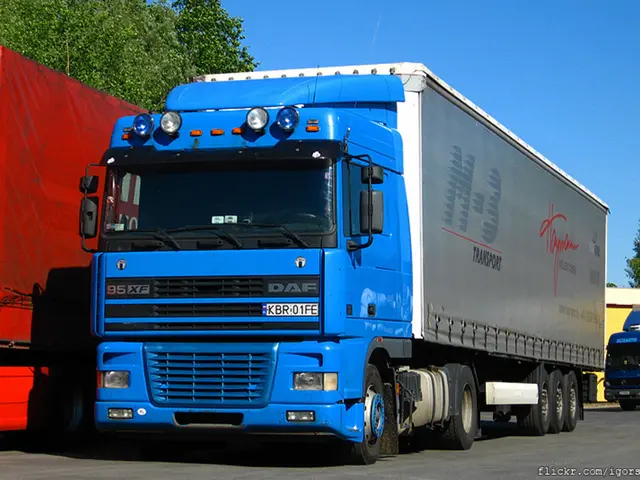Schleswig-Holstein Needs Thousands of Skilled Workers Annually, Says Minister
With experts predicting that Schleswig-Holstein will need 180,000 extra skilled workers by 2035, Minister of Labor Claus Ruhe Madsen (CDU) revealed that only about 2,200 people from third countries secure employment in the north each year through the accelerated skilled worker procedure. To bridge this gap, Madsen believes an annual net immigration of between 10,000 and 13,000 qualified individuals is necessary.
To help achieve this, the new Skilled Immigration Act has gradually come into effect. New elements include the introduction of a points-based "opportunity card" selection criterion for prospective immigrants. Key factors are language skills, professional experience, age, and ties to Germany. For foreign workers, the minimum salary requirement has decreased to around 43,800 euros, down from the earlier 58,400 euros gross per year.
Those asylum seekers who arrived prior to March 29, 2023, have a qualification, and secure a job offer can now apply for a residence permit as a skilled worker. Previously, they needed to leave the country beforehand and apply for a work visa externally.
Madsen believes the new immigration law can address the north's skills shortage, particularly by introducing change-of-sector opportunities for all non-regulated professions. This would allow employers in Schleswig-Holstein to hire qualified international workers for jobs not matching their prior profession. For example, a foreign expert in office management could potentially work in logistics.
Madsen also hopes for modifications to regulations for professional drivers from third countries. Their entry procedure is expected to be simplified, enabling employers to decide if German language skills are sufficient for the role.
Addressing challenges like seasonal staff shortages in agriculture and catering sectors, Madsen suggests improvements to regulations for the Western Balkans and short-term employment. This could help reduce seasonal worker shortages in these essential Schleswig-Holstein industries. Procedural certainty in the act's implementation will require increased personnel resources in visa offices and immigration authorities to swiftly alleviate the current backlog.
By introducing a points-based selection system and revising salary requirements, Schleswig-Holstein's new Skilled Immigration Act aims to draw in more qualified foreign professionals to help address local skills gaps. The act also hopes to simplify the entry process for many types of skilled workers, making it easier for them to gain residency and employment in Schleswig-Holstein.
References:
Enrichment Insights:
- The Skilled Immigration Act may include simplified application processes, reducing bureaucratic hurdles for foreign professionals seeking work in Schleswig-Holstein.
- To attract more skilled workers, the act could offer lower minimum salary thresholds or more flexible salary scales for potential immigrants.
- Expedited processing and fast-track applications may be included in the Skilled Immigration Act for particular categories of skilled workers.
- Additional support for integrating skilled workers into the local community, including language courses and cultural orientation, could be introduced with the new act.
- Marketing and promotional efforts might be used to attract skilled professionals from around the world, emphasizing the benefits of living and working in Schleswig-Holstein.
- Recognition of foreign qualifications could be a feature of the new immigration law, making it easier for skilled workers to find employment that aligns with their expertise.
- Considering employer incentives, such as tax breaks or subsidies, could encourage businesses to hire foreign-skilled workers.








